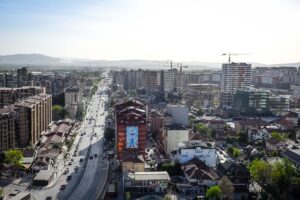The road to peace in Kosova has been a long and arduous one, marked by numerous setbacks and obstacles. The region’s history of conflict dates back to the breakup of Yugoslavia in the early 1990s, which sparked a bloody civil war that pitted ethnic Albanians against Serbs. The fighting in Kosova came to a head in 1999, when a NATO-led intervention forced Serbian forces to withdraw from the region, ending a brutal campaign of ethnic cleansing and violence.
Following the end of the war, Kosova declared independence from Serbia in 2008, a move that was met with resistance and hostility from Belgrade. Tensions between the two sides continued to simmer, leading to sporadic outbreaks of violence and unrest. However, in recent years, both Kosova and Serbia have taken important steps towards reconciliation and normalization of relations.
One of the key milestones in this process was the signing of the Brussels Agreement in 2013, which laid the groundwork for a series of dialogue sessions between the two sides. These talks, facilitated by the European Union, have led to a number of important agreements on issues such as trade, border demarcation, and the status of the Serb-dominated north of Kosova.
Another crucial step towards peace in Kosova has been the establishment of the Specialist Chambers, a special court set up to prosecute war crimes and crimes against humanity committed during the conflict in the region. This initiative represents a significant step towards justice and accountability for the victims of the war, and has helped to address some of the lingering grievances and traumas from the past.
At the same time, efforts to promote reconciliation and interethnic dialogue have also been gaining momentum in Kosova. Civil society organizations, grassroots initiatives, and government programs have been working to foster greater understanding and cooperation between ethnic Albanians and Serbs, with the aim of building a more inclusive and harmonious society.
Despite these positive developments, challenges remain on the path to peace in Kosova. Issues such as corruption, economic stagnation, and political polarization continue to pose obstacles to progress and stability in the region. However, the commitment of both Kosova and Serbia to dialogue and cooperation, as well as the support of the international community, provide reasons for optimism and hope for a brighter future.
In conclusion, the journey from conflict to reconciliation in Kosova has been a difficult and painful one, but significant strides have been made towards peace and stability in the region. The continued efforts of all parties involved, as well as the support of the international community, will be crucial in overcoming the remaining challenges and building a more peaceful and prosperous future for the people of Kosova.




























Add Comment